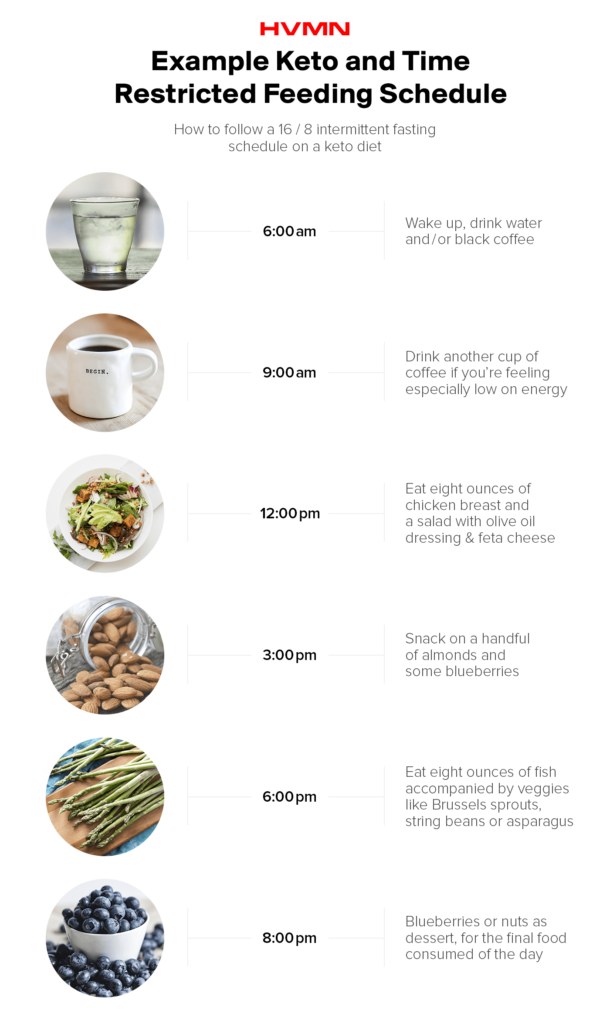Dr. Annette Bosworth, known as Dr. Boz, addresses the challenges of modern life and offers guidance on managing stress through her engaging video series. Set on Tuesday nights, viewers are invited to ask questions in real-time while exploring health improvements via ketogenic practices. Dr. Boz shares personal experiences that many can relate to, including her own struggles with stress during significant life changes and the demands of her professional responsibilities.
Throughout the session, Dr. Boz emphasizes the importance of balancing stress hormones and maintaining proper sleep patterns. As she shares effective techniques to lower cortisol levels and increase melatonin, viewers can expect practical insights into managing stress without resorting to unhealthy habits. Her commitment to education is reinforced through a variety of resources, including free courses and informative content, ensuring that you are equipped with the knowledge to enhance your health.

Understanding Stress
Definition of Stress
Stress is a natural reaction to challenging situations, both external and internal. It manifests as a response from your body to perceived threats, triggering a complex interplay of physiological and psychological reactions. While stress can sometimes motivate you to take action and overcome challenges, excessive or chronic stress can be detrimental to your well-being.
Types of Stress
Understanding the different types of stress can help you manage them effectively. The two primary types are:
-
Acute Stress: This type is short-term and arises from specific events or situations, like a looming deadline or an upcoming presentation. Acute stress can be beneficial in small doses as it encourages quick thinking and a response to immediate challenges.
-
Chronic Stress: Unlike acute stress, chronic stress persists over an extended period, often resulting from ongoing circumstances such as a demanding job or difficult relationships. Chronic stress can have severe health implications if not addressed.
Common Causes of Stress
Common sources of stress include:
- Work-related pressures: Tight deadlines, job insecurity, or conflicts with colleagues.
- Personal issues: Relationship difficulties, family responsibilities, or caregiving for loved ones.
- Financial concerns: Worrying about bills, debt, or economic instability.
- Health-related challenges: Personal health issues or chronic illnesses that impact daily life.
Recognizing these causes in your own life is the first step toward effective stress management.
The Impact of Stress on Health
Physical Effects
Chronic stress can lead to numerous physical health problems such as hypertension, cardiovascular diseases, and weakened immune responses. Prolonged exposure to stress hormones, like cortisol, disrupts various bodily functions, making you more susceptible to illnesses.
Mental Health Consequences
The impact of stress on mental health is profound. It can contribute to conditions such as anxiety disorders, depression, and burnout. When stress is unmanaged, it can alter your mood, reduce your productivity, and diminish your overall quality of life.
Long-term Health Risks
Over time, chronic stress can lead to severe health complications, including diabetes, obesity, and gastrointestinal issues. Furthermore, it may increase the risk of developing neurodegenerative diseases, such as Alzheimer’s, as prolonged stress affects brain chemistry and function.

Dr. Boz’s Personal Experiences with Stress
Recent Stressful Situations
Dr. Boz, known for her candid sharing of personal experiences, describes her recent challenging period of being without a permanent home for over four months. This experience understandably compounded her stress as she navigated various life and professional responsibilities.
Coping with Business Demands
During peak business seasons, such as her 21-day Metabolic Kick program, Dr. Boz experiences immense pressure. Managing the expectations of her 200 students while ensuring quality outcomes can feel overwhelming. Her commitment to providing excellent education under these circumstances showcases her dedication but also reveals the stress that accompanies such endeavors.
Balancing Personal and Professional Life
Striking a healthy balance between personal life and professional responsibilities is crucial for stress management. Dr. Boz emphasizes the importance of maintaining a routine, particularly regarding sleep, to mitigate stress-induced fatigue and enhance overall wellbeing.
The Role of Hormones in Stress Management
Understanding Cortisol and its Effects
Cortisol, often dubbed the “stress hormone,” is produced in response to stress. While it plays a vital role in helping you cope with immediate threats, continuously elevated cortisol levels due to chronic stress can lead to various health issues. Managing cortisol levels is essential for maintaining balanced energy and emotional well-being.
The Importance of Melatonin
Melatonin, the sleep hormone, works inversely to cortisol, promoting relaxation and sleep quality. Adequate melatonin levels are crucial for healthy sleep patterns, which in turn can aid in stress management. Strategies for enhancing melatonin production include establishing a calming bedtime routine and creating a sleep-conducive environment.
Oxytocin: The Love Hormone
Oxytocin is a hormone associated with social bonding and emotional support. Often referred to as the “love hormone,” it helps to reduce stress and promote feelings of well-being. Engaging in nurturing activities, such as spending time with loved ones or practicing physical affection, can stimulate oxytocin release and counteract the adverse effects of stress.

Effective Techniques for Managing Stress
Mindfulness and Relaxation Practices
Mindfulness practices, such as meditation or deep-breathing exercises, can significantly reduce stress levels. These techniques encourage you to focus on the present moment, promoting relaxation and mental clarity. Incorporating mindfulness into your daily routine can empower you to manage stress more effectively.
Lifestyle Changes for Better Sleep
Implementing lifestyle changes can dramatically improve sleep quality, a key factor in stress management. This includes maintaining a consistent sleep schedule, reducing caffeine intake, and creating a relaxing bedtime environment. Prioritizing good sleep hygiene can enhance your overall physical and mental health.
Activities for Emotional Healing
Engaging in activities that promote emotional healing and personal enjoyment can alleviate stress. Hobbies like art, music, or physical activities help you express emotions and divert focus from stressors. Identifying and pursuing your passions is an essential component of a balanced, fulfilling life.
Engaging the Audience
Encouraging Questions during Live Sessions
Dr. Boz encourages interaction during her live sessions, prompting viewers to ask questions and share experiences. This two-way communication fosters a sense of community and allows participants to gain valuable insights from collective experiences with stress management.
Sharing Personal Stress Management Techniques
The sharing of personal stress management techniques among audience members enriches the conversation. By exchanging strategies and successes, you can learn and find effective methods that resonate with you, fostering a collaborative approach to overcoming stress.
Building a Supportive Community
Establishing a supportive community can make managing stress feel less isolating. Engaging with others facing similar challenges allows you to share experiences, lift each other up, and seek advice. Building connections with individuals who understand your journey is crucial for personal growth and resilience.
Health Tips from Dr. Boz
Using the Ketogenic Diet for Stress Relief
Dr. Boz advocates for the ketogenic diet as a beneficial tool for stress relief. By promoting ketone production, this dietary approach helps stabilize blood sugar levels and reduces cortisol, improving overall health and resilience against stress.
Importance of Monitoring Blood Ketones and Glucose
Monitoring ketone and glucose levels is essential for understanding how your body is responding to dietary changes. Keeping track of these values enables you to make informed choices about your eating habits and optimize your stress management strategies.
Supplementation Recommendations
Incorporating specific supplements can support stress reduction and overall health. Dr. Boz suggests considering options like magnesium for better sleep and emotional stability. Always consult a healthcare provider before adding new supplements to your regimen.
Fasting and Its Benefits
Understanding Intermittent Fasting
Intermittent fasting is a strategic eating pattern that alternates between eating and fasting periods. It can help support weight management, improve metabolic health, and reduce stress by giving your body time to rest and recover from constant digestion.
Recommended Fasting Durations
Dr. Boz recommends specific fasting durations, such as 24 to 36 hours, especially for those with insulin resistance. These fasting windows can enhance metabolic health and lead to better balance in stress hormone levels.
Effects of Fasting on Insulin Resistance
Fasting may help improve insulin sensitivity, which is crucial for health and weight management. By allowing your body to transition into a fat-burning state, fasting can mitigate some stress-related health risks and promote overall well-being.
Common Health Concerns Addressed
Understanding GLP-1 Medications
GLP-1 medications are often discussed in the context of diabetes and weight management. Dr. Boz emphasizes the importance of understanding how these medications affect insulin levels and their impact on long-term health outcomes.
Impact of Methylated Folate for MTHFR
Dr. Boz highlights the relevance of methylated folate for individuals with the MTHFR gene mutation, which affects folate metabolism. Addressing this health concern can significantly improve stress levels and overall well-being.
Monitoring Cholesterol and Insulin Resistance
Regular monitoring of cholesterol and insulin levels is essential for managing health, particularly in understanding insulin resistance. Dr. Boz explains that elevated cholesterol is not always a cause for concern when accompanied by normal calcium scores and BMI.
Conclusion
Summarizing Key Points on Stress Management
Effective stress management is essential for maintaining physical and mental health. Understanding the types of stress, its impacts, and employing techniques such as mindfulness and dietary adjustments can significantly enhance your quality of life.
Encouraging Lifelong Health Practices
Emphasizing a holistic approach to health, including diet, exercise, and emotional support, is critical for long-term resilience against stress. Cultivating these practices throughout your life can lead to improved overall well-being.
Invitation to Continue the Conversation
Dr. Boz invites you to continue the discussion, encouraging the sharing of questions and personal experiences. Building a community focused on health and wellness provides support for everyone on their journey to managing stress effectively.







